The Best E-commerce Platforms for D2C Brands (2025 Edition)
18th April 2025 / in Ecommerce / by Ruturaj Kohok
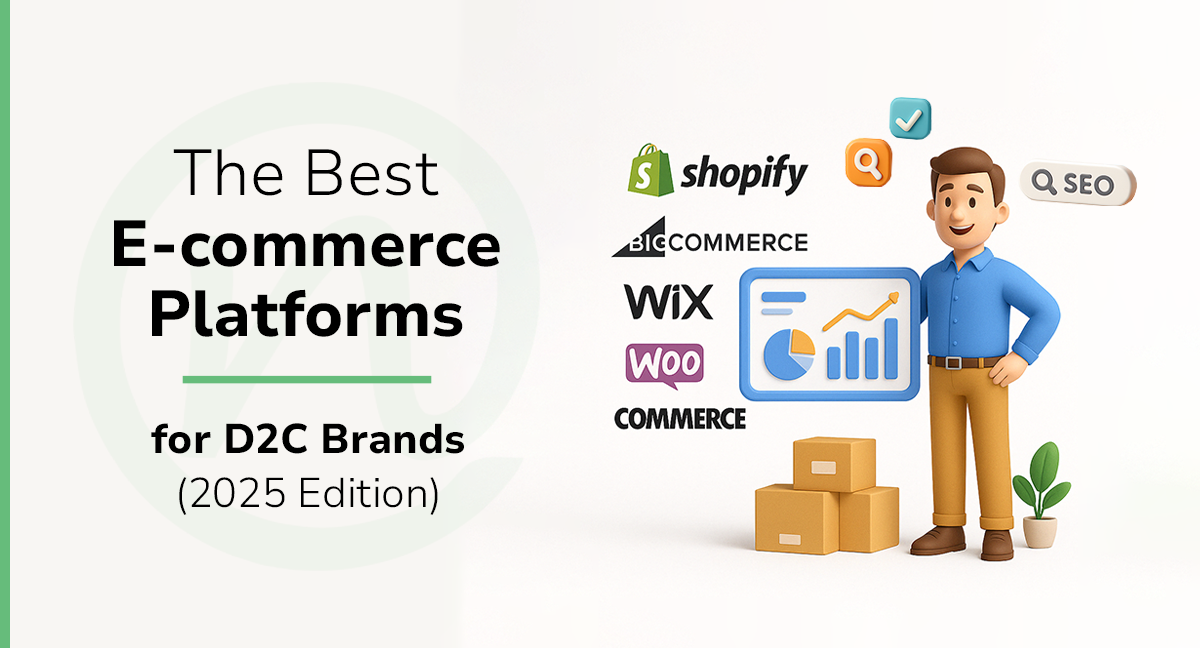
Lately, the D2C industry has seen an EXPLOSIVE growth.
And check this out: with a compound annual growth rate of 19% expected between 2022 and 2030, we’re seeing a complete shift in how brands connect with their customers.
Talk about a BIG transformation!
We understand how crucial it is to pick the right e-commerce platform for your business success.
Just look at the numbers – Shopify powers countless online stores, while BigCommerce supports over 42,000 live websites.
And here’s the kicker –
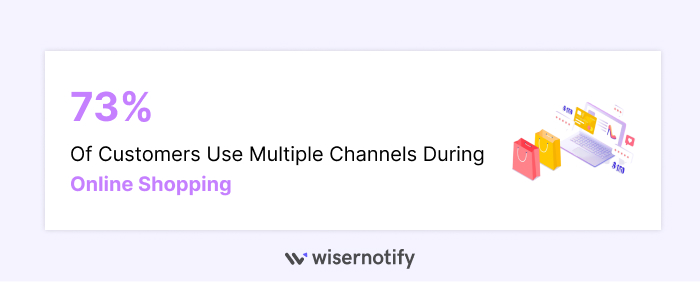
Source: Wisernotify
73% of customers use multiple channels to make purchase decisions. If your platform can’t handle omnichannel retail, you’re already falling behind!
That’s exactly why we’ve put together this guide for you – to help you find the perfect e-commerce platform for your D2C brand.
We’ll dive into essential features, compare the leading platforms, and show you exactly how to choose the solution that fits your business needs in 2025 and beyond.
Let’s jump right in!
The Evolution of D2C Marketing in E-commerce
The retail world as we know it has completely transformed – and it’s all because brands are going direct to their customers!
This is causing a major shift in how businesses go about their marketing and sales.
How D2C strategies have transformed retail
D2C e-commerce has absolutely redefined retail by cutting out those traditional middlemen – the wholesalers and retailers.
When brands go direct, they gain complete control over everything from product development to marketing, sales, and customer engagement.
And what happens next? They can offer unique products while making the entire shopping experience way better!
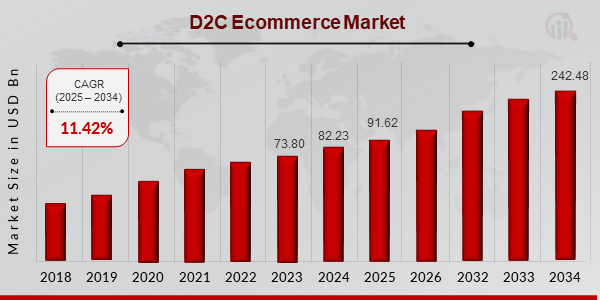
Source: Market Research Future
The global D2C e-commerce market is on track to reach $242.48 billion, with a compound annual growth rate of 11.42% from 2025 to 2034.
Why such massive growth? It’s all about changing consumer preferences.
Here’s why D2C is so attractive for businesses – when brands rely on middlemen, their earnings are limited to that markup from cost price to wholesale price.
But with D2C? Manufacturers can sell at retail prices and capture ALL the markup that would typically go to retailers. That’s a major profit boost!
And that’s not all – this model gives brands direct access to crucial customer data like email addresses, locations, social media interactions, and buying patterns.
The result? More personalised experiences – something that 51% of consumers consider absolutely essential.
The growing importance of owned channels
We understand just how vital owned channels have become in the D2C world – Email, SMS, websites, apps, and social media accounts that YOU control.
Unlike paid media, where you’re constantly renting attention, owned media compounds over time, making it one of the most profitable growth levers out there.
Let’s look at high-margin channels like email, SMS, and mobile apps – they keep customers coming back again and again!
Ultimately, owned channels create what marketers call a “profit moat” – shielding your business from rising ad costs while building sustainable growth.
For a D2C business aiming for long-term success, investing in these channels isn’t just a nice-to-have; it’s absolutely essential.
What are the Leading D2C E-commerce Platforms?
Picking the right platform plays a key role in determining your D2C e-commerce success.
So, let’s dive into the standout players who have proven their worth for direct-to-consumer brands.
1.Shopify and its ecosystem
Shopify has established itself as the undisputed market leader in D2C commerce, and it’s easy to see why!
Its unified commerce platform integrates literally every aspect of online selling.
The results speak for themselves – brands using Shopify Plus report massive business improvements.

Source: shopify
The platform absolutely shines when it comes to international commerce, enabling brands to charge customers in their preferred currencies and localise website content to match their expectations.
But what really sets Shopify apart? Its comprehensive D2C toolkit is simply unmatched!
You should go for shopify development services as Shop Campaigns drives up to 24% new customer growth, while its fulfilment network is incredibly efficient.
And for brands pursuing omnichannel strategies (which you absolutely should be), Shopify seamlessly syncs inventory, orders, and pricing across all sales channels from a central hub.
No more disconnected systems or manual updates!
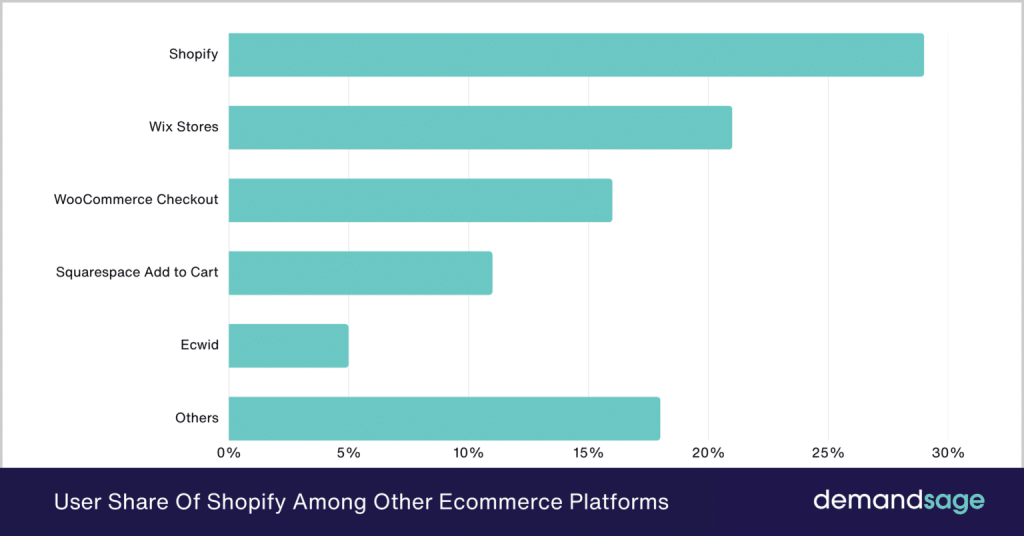
Source: Demand Sage
Check this out – Shopify owns around 30% of the e-commerce market share, followed by Wix at just over 20%.
All of this makes Shopify one of the best e-commerce platforms for D2C brands.
2.WooCommerce flexibility for customised experiences
WooCommerce is another e-commerce platform that stands in a league of its own if you’re looking for customisation options.
As an open-source WordPress plugin, it empowers businesses to build highly differentiated shopping experiences without requiring coding expertise.

Source: WooCommerce
This flexibility extends to selling pretty much anything – physical goods, digital downloads, or services.
The platform’s real strength? You can scale alongside your business, no matter how big or small you start with WooCommerce!
3.BigCommerce's enterprise capabilities
BigCommerce positions itself as a serious contender for mid-market and enterprise D2C brands,
The platform also offers robust B2C and B2B capabilities through its Open SaaS model, allowing brands to customise freely while maintaining enterprise-grade performance.
After all, what good is customisation if your site keeps crashing?

Source: BigCommerce
What truly distinguishes BigCommerce from competitors is its security and reliability.
The platform maintains 99.99% average uptime with 100% Cyber Week uptime for six straight years.
If you’ve ever dealt with site outages during peak shopping seasons, you know just how valuable this is!
BigCommerce also holds multiple security certifications, including PCI DSS 4.1 Level 1 and various ISO standards.
Plus, its Google Cloud infrastructure ensures exceptional site speed and performance at scale. No more slow loading times during traffic spikes!
4. Adobe Commerce & its scalability
Adobe Commerce (formerly known as Magento) is another D2C platform that more and more people are choosing, thanks to its credibility and scalability.
If your customers expect fast and seamless navigation, easy checkout experiences, and personalisation, Adobe Commerce is one of the top choices for you.

Source: Adobe Commerce
It is an up-and-coming platform for offering multichannel experiences for users by supporting headless architecture. This SIGNIFICANTLY enriches D2C marketing strategies, enabling custom experiences.
The best part of going for Adobe Commerce is that you can manage multiple sub-brands from the same backend, even if they have different languages, currencies, or products!
5. Other emerging platforms
Other than the “big four,” there are many other platforms that are just as popular.
Let’s start with Wix.
It is a well-known platform that has an easy drag-and-drop builder. This makes it convenient for small-scale brands to select from templates and tools to manage their content easily.
Next in line is StoreHippo.
Businesses can streamline operations and create AMAZING consumer experiences with its enterprise-grade features and sturdy architecture. It offers customised storefronts, mobile-first solutions, and scalability.
Another emerging D2C platform is OpenCart.
If you are looking for a low-cost solution, this is the perfect platform for you. It is simple, versatile, and helps you create your online store without spending a lot.
Why choose these platforms for D2C Business?
When it comes to picking a D2C e-commerce platform, it’s not just about how pretty it looks – it’s about having the right infrastructure that meets customer expectations and drives serious growth.
So what features should you be looking for? Let’s dive in!
1. Customer data collection and analytics tools
Let’s start with numbers –
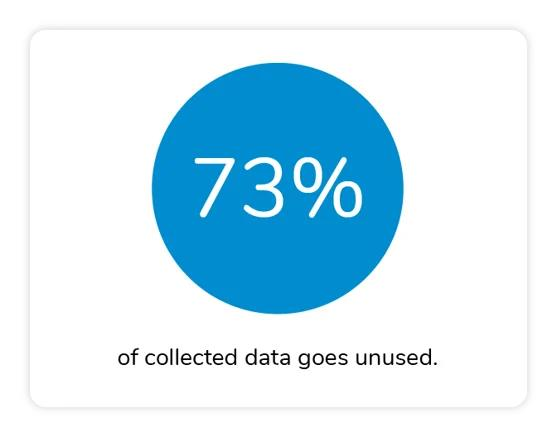
Source: Demand Jump
Did you know that a whopping 73% of data collected by brands goes unused for analytics? What a missed opportunity!
An effective D2C marketing strategy isn’t just about collecting data – it’s about transforming that data into actionable insights that actually help your business grow.
The best platforms offer advanced analytics capabilities that help you set clear KPIs, track your customers’ journeys, and make smart, data-based decisions.
Without these tools, you’re basically flying blind! And what good is that?
2. Personalisation capabilities
We can’t stress this enough – personalisation isn’t just a nice-to-have anymore, it’s absolutely essential for D2C businesses.
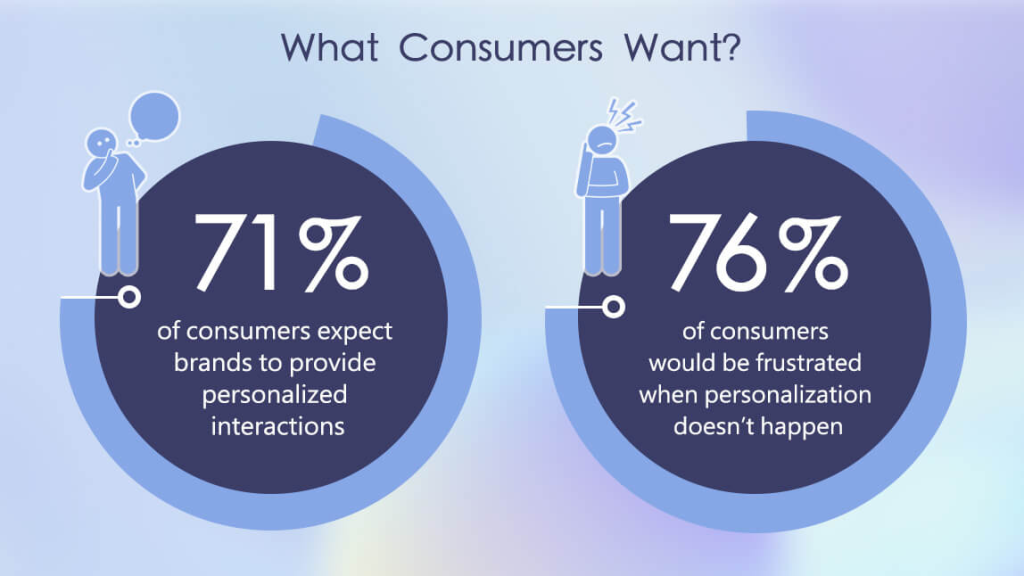
Source: Perfect Corp
Did you know?
About 71% of consumers now expect tailored interactions, and 76% have expressed frustration if it doesn’t happen.
That’s right – they’re not just hoping for personalisation, they’re expecting it!
What should you look for?
The answer is simple – look for e-commerce platforms with robust segmentation tools that let you create custom experiences based on demographics, purchasing behaviour, and browsing habits.
And here’s something that’ll make your jaw drop – personalised product recommendations can increase conversion rates by an incredible 320%.
That’s not just an improvement – that’s a complete game-changer!
3.Mobile optimisation requirements
Let’s face it – we all shop on our phones these days.
Mobile devices drive a huge portion of e-commerce traffic, so optimisation isn’t optional… It’s non-negotiable.
Your platform needs to support thumb-friendly navigation (no more pinching and zooming!), one-page checkouts, and a responsive design that looks amazing on any screen size.
And speed? It’s absolutely critical – mobile users are five times more likely to abandon sites that take longer than three seconds to load.
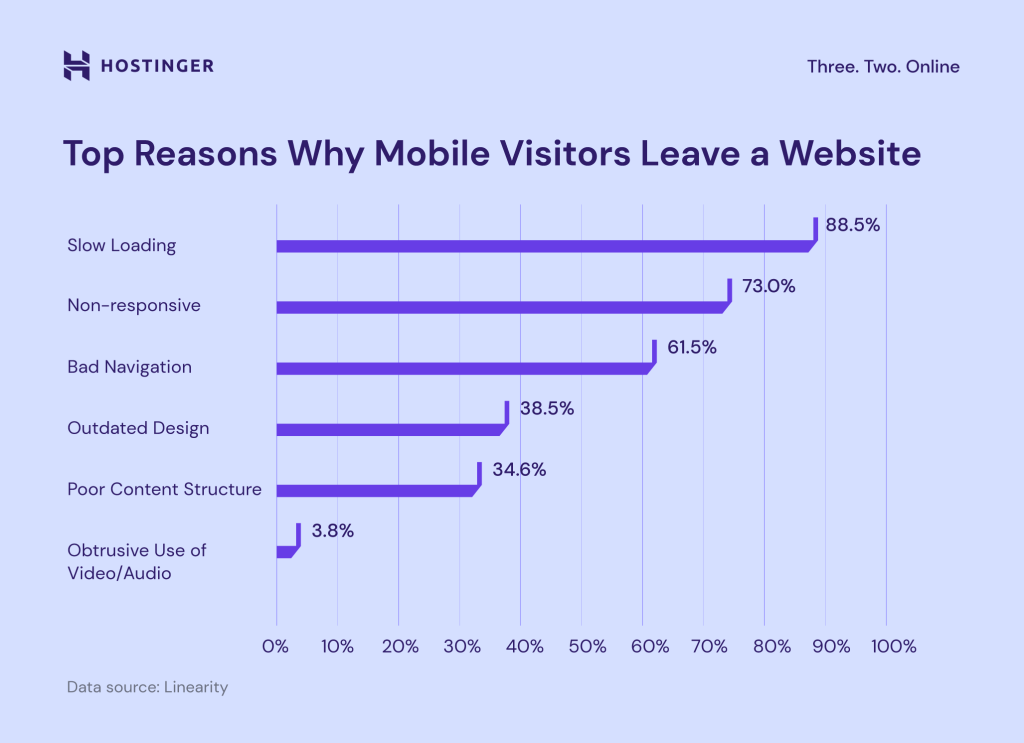
Source: Hostinger
- Check out the top reasons why mobile users leave a website:
88.5% of users will leave a website if the site takes too long to load; - 73% of users will do so if the website is non-responsive;
- Bad navigation and outdated design account for 61.5% and 38.5%, respectively.
- Poor content structure plays a 34.6% role, and obtrusive video/audio makes 3.8% of users leave the website.
Yes, you read that right – doesn’t mobile optimisation seem like a GREAT idea now?
4. Payment and checkout flexibility
When it comes to D2C strategies, the checkout experience can make or break your conversion rates – and the numbers prove it.
What separates the good platforms from the great ones? Superior platforms offer:
- Multiple payment options, including digital wallets
- Guest checkout functionality (preferred by 43% of shoppers)
- Integrated security features like SSL encryption
Remember – the easier you make it for customers to pay, the more likely they are to complete their purchase!
5. Scalability
If you want to ensure your business’s long-term growth, it is important to choose one of these platforms for assured scalability.
It also ensures that you can go global with ease by integrating multi-language stores with various currencies, setting up regional warehouses and local stores.
Another important reason why D2C brands should go for scalable platforms is that they are flexible to handle seasonal or sale-based traffic surges without crashing.
It also allows for integrations with CRM systems, analytics, and even retention tools!
Brands that follow a D2C model
- Netflix: Netflix distributes its content directly to users through subscription models through its own platform.
- Tesla: Tesla skips the dealership model, directly selling its automobiles to customers.
- Lenskart: Lenskart manufactures and sells glasses, lenses, eye accessories directly through its website, app, and physical stores.
- Mamaearth: Mamaearth is a toxin-free skincare brand that directly connects with its customers to sell its products.
- Pepperfry: Pepperfry is a D2C furniture brand that eliminates the retail markup by selling directly from the warehouse to the consumer.
- Bewakoof: Bewakoof is an Indian apparel brand that follows the D2C business model with no middlemen.
You can clearly see that the D2C e-commerce model is a hit in every industry – be it automobile, furniture, skincare, or apparel!
Final thoughts
Choosing the right platform for your D2C e-commerce brand is ABSOLUTELY critical to thrive in 2025 and beyond.
Through our deep dive, we’ve seen how platforms like Shopify, WooCommerce, and BigCommerce each offer unique advantages for different business needs.
Here’s the thing – success in D2C ecommerce isn’t just about picking any platform and hoping for the best.
It demands a strategic approach that combines robust features, seamless integrations, and strong owned channels.
The future looks incredibly bright for D2C brands that embrace these technological capabilities.
Remember – the best platform isn’t necessarily the most expensive or feature-rich one; it’s the one that best serves YOUR unique business needs while delivering exceptional customer experiences.
We understand that choosing a platform is a big decision, but with the right approach, you’ll set yourself up for D2C success for years to come!
Ps. Need help with setting up your D2C e-commerce store? Get in touch with us today!































